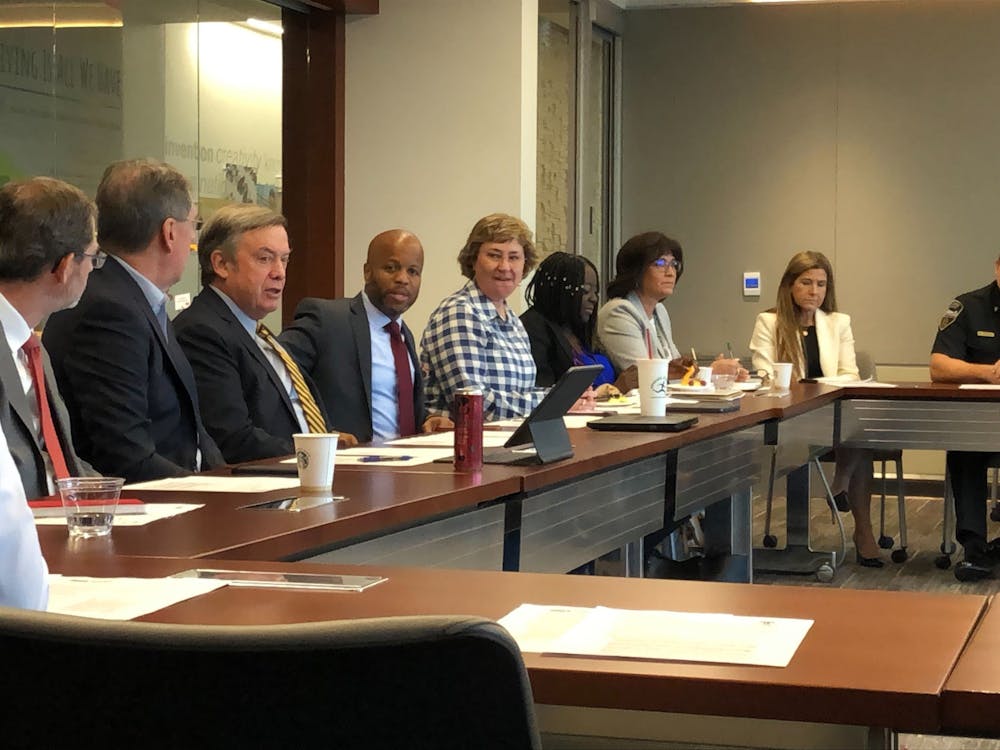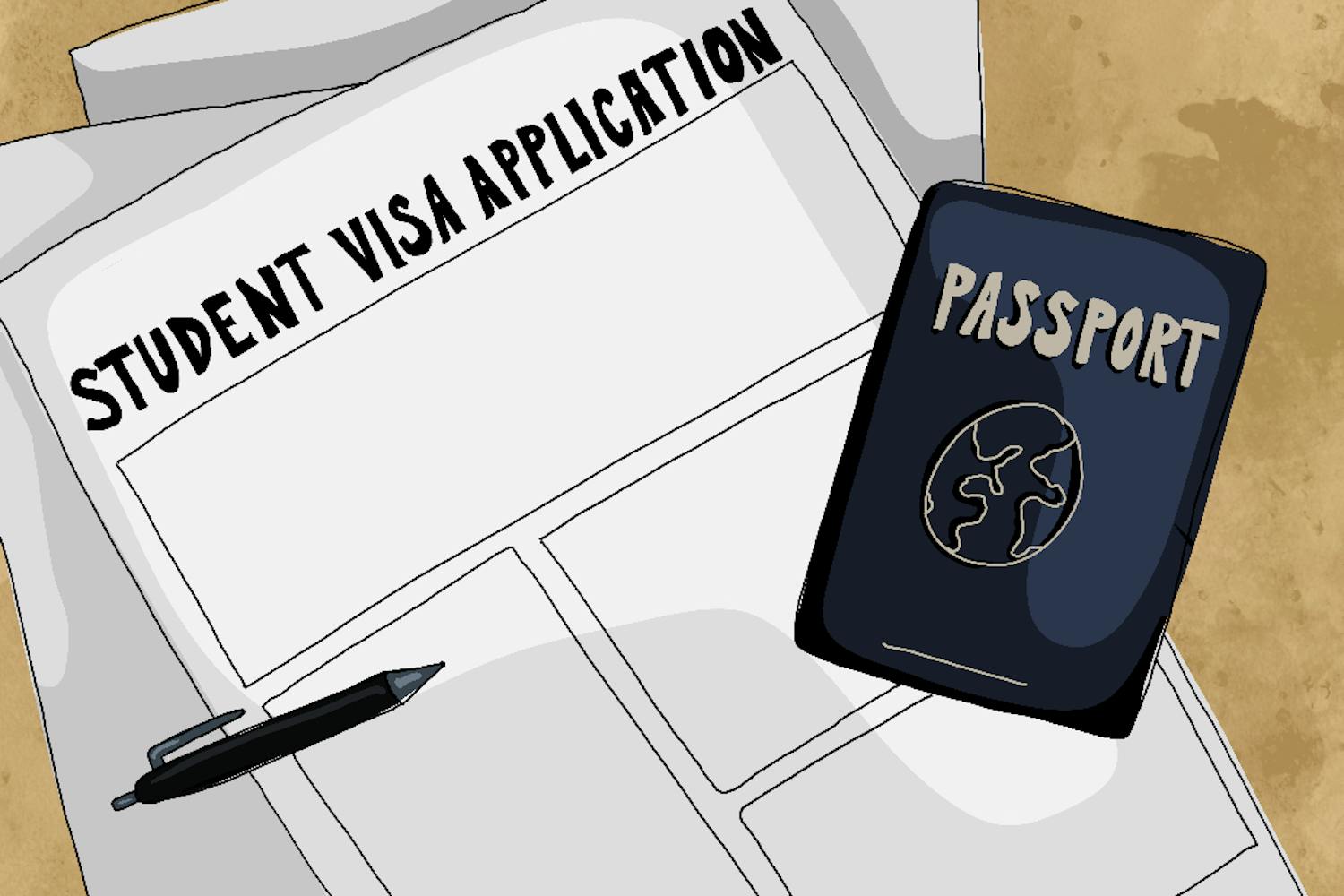ASU President Michael Crow and Tempe Mayor Corey Woods — along with members of the Tempe City Council, ASU administration and more — held their first public meeting since 2019 to discuss Tempe's development and potential as "a host for a global institution" as the city that houses ASU's primary campus.
The meeting at the Fulton Center on Oct. 25 laid out a variety of developmental plans for Tempe that are underway. This includes structural changes on Mill Avenue, construction adding bike lanes and pedestrian crossings near the University, updates on the construction of Novus Innovation Center and other research facilities, a Mesa extension for the Tempe street car, and the anticipation of the Tempe Omni Hotel to finish construction by April 2023.
Joint meetings between ASU administration and the Tempe City Council used to be annual, but the COVID-19 pandemic put those meetings on hold, said ASU Director of Government and Community Engagement Tim Gomez, who is also a former aide for the Tempe City Council. While this meeting is traditionally not live-streamed, it is open to the public.
As part of his work to expand the University and facilitate "research intensification," President Crow said there will be "many new facilities" constructed to house living space, classrooms, research and technology. As examples of this pursuit, Crow mentioned the ASU California Center, the Skysong Innovation Center in Scottsdale, newly added units of the Global Futures Laboratory and ASU's partnership with the Mayo Clinic to create the Alliance for Health Care program.
"In the midst of the city is the headquarters of a globally evolving, globally impactful teaching, learning and discovery institution," Crow said. "It's little wonder that you can build four or five brand new hotels within walking distance of this building, and they're all instantly successful. They're all instantly moving forward in positive ways."
Woods said his goals for the city are to address homelessness in a manner that is innovative and humane, in addition to vamping up downtown Tempe. This includes a $7.9 million budget allocated to improving lighting, bettering walkways and attracting new businesses and restaurants to Mill Avenue and other parts of the downtown area.
"We recognize that at one point Tempe was pretty much the only place you could go if you wanted kind of a downtown nightlife experience," Woods said. "But we recognize now we're in competition with a lot of other places."
Woods said the state contributed $6 million to the city's Hometown for All Initiative during their last legislative session. Deputy City Manager Rosa Inchausti said that bringing more opportunities for activity into the city will also reduce the presence of people experiencing homelessness.
"What we know is what we all probably assumed: you activate an area, the unsheltered find other areas to go," Inchuasti said. "I'm not saying that we are not sheltering individuals, I'm just saying activation helps people feel safe."
Crow and Woods will continue to have frequent meetings to work together towards their goals for the city of Tempe, as "both the city and university are still in the earliest stages of development."
Edited by Reagan Priest, David Rodish and Grace Copperthite.
Reach the reporter at awaiss@asu.edu and @WaissAlexis on Twitter.
Like The State Press on Facebook and follow @statepress on Twitter.

Alexis Waiss is an assignment editor and senior reporter, covering breaking news and writing long-form stories. Alexis worked on SP's politics desk for a year, where she reported on the Legislature, higher education policy, student government, the city of Tempe and stories highlighting social justice. She previously worked as a fellow for the Asian American Journalist Association's VOICES program.




